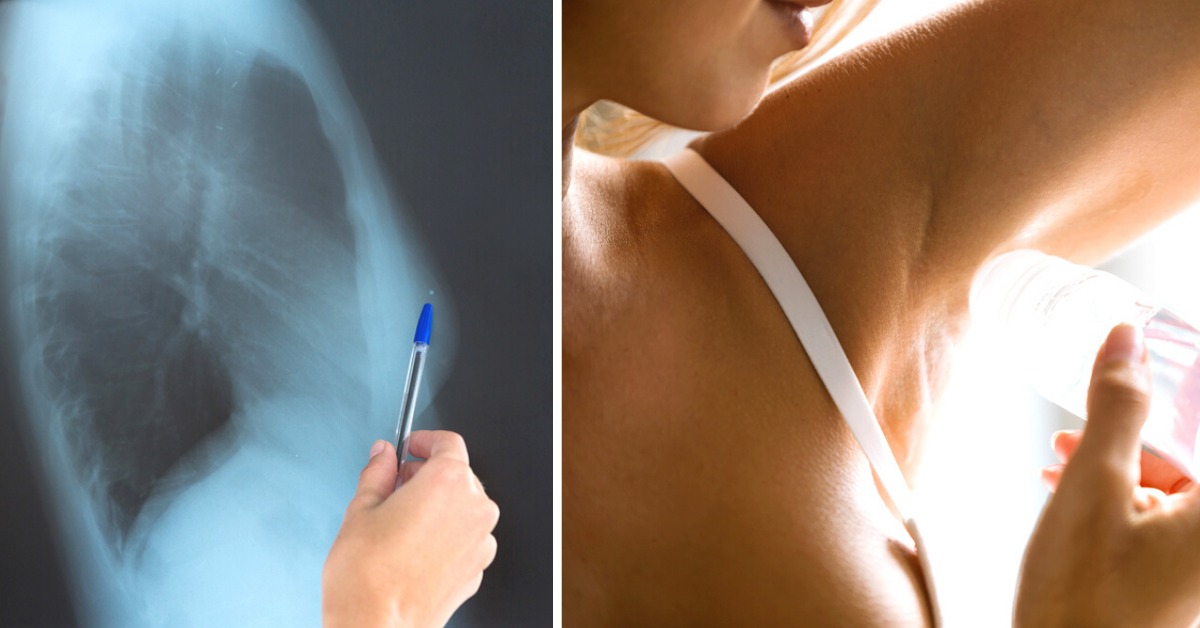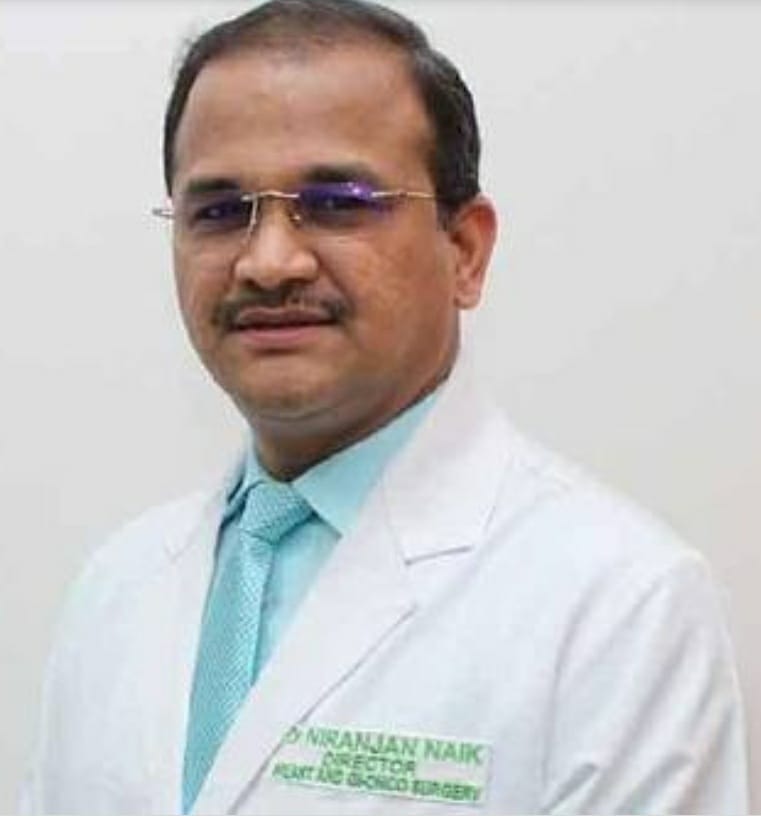Antiperspirants/Deodorants Play an Active Role in Breast Cancer: Is It Just a Myth?
Breast cancer is a non-hereditary disease.

In India, one woman is diagnosed with breast cancer every 4 minutes and unfortunately one woman dies of breast cancer every 13 minutes. It is no wonder then that the fear of cancer is rising among people, especially women.
The Better India spoke to Dr Niranjan Naik, Director – Breast and Gastro-Intestinal Onco-Surgery, Fortis Memorial Research Institute, Gurugram, to help bust some myths that surround this disease.
Myth: Using antiperspirants/deodorants increase the chance of getting breast cancer
Fact: Dr Naik says, “As of now there is no definite evidence to point to the fact that using antiperspirants/deodorants has any direct relation to breast cancer. However, some of the ingredients that are used in such products like parabens, for one, have shown to have some carcinogenic impact and therefore one must exercise caution while using such products, especially the antiperspirant roll-ons.”
Looking for paraben-free deodorants? We have an entire range for you.
It is believed that using antiperspirants/deodorants in the underarms may lead to breast cancer. The substances are absorbed through razor nicks and settle in lymph nodes, thereby increasing the risk of cancer.
Dr Naik dispels these theories by saying that there is absolutely no conclusive evidence to show a link between usage of such products and breast cancer.
Solution: To exercise caution, one could use products that are free of carcinogenic ingredients. Pick cosmetics that are paraben-free, says Dr Naik.
Myth: No family history of breast cancer means chances of developing it is very low
Fact: Breast cancer is a non-hereditary disease.
“Only about 8 to 10 per cent of the entire breast cancer cases are hereditary, whereas the rest of the cases are all non-hereditary, referred to as sporadic,” says Dr. Naik.

This suggests that there are many other factors like pollution and lifestyle that contribute to this disease.
“When one has a positive family history, that is mainly first degree relatives like mother, daughter, or sister – then the risk of getting cancer is very high,” he adds.
Solution: If you have a first-degree family history of breast cancer, it is advisable that you get tested and meet your medical practitioner annually.
Myth: If you maintain a healthy weight, eat right, exercise often – then you will not be afflicted with breast cancer.
Fact: “Any cancer is a lifestyle disease. Obesity is one of the known risk factors for breast cancer. High levels of estrogen in the body are also one of the risk factors for cancer. Estrogen is usually stored in the fat cells, so the more the fat cells, the more the estrogen in the body. This, in turn, could increase your risk of getting breast cancer.”
Not doing enough exercise and leading a sedentary lifestyle are all risk factors that need to be addressed. However, Dr Naik also says that just by following a healthy lifestyle, eating right, not smoking, and exercising alone cannot ensure that you are totally immune from cancer.
Solution: Continue a healthy lifestyle and avoid excesses of all kinds.
Myth: Wearing underwire bra, especially at night can cause breast cancer
Fact: “This is something I am asked often and is nothing but a myth. There is absolutely no proven evidence to show that wearing an underwire bra, either during the day or to bed at night can cause breast cancer. Only thing that can occur is fat necrosis, which is caused by the sides of the wire,” informs Dr Naik.
He describes ‘fat necrosis’ as a lump of dead or damaged breast tissue that sometimes appears in women who wear underwire bras. The pressure from the wire causes significant pressure on the breast tissue which reduces the blood supply to the area leading to damages. Fat necrosis is harmless and doesn’t increase your cancer risk.
Solution: It is advisable to go to bed without any bra – Dr Naik says nature intended it to be that way. Ideally, one should remove the bra at night however not doing that is absolutely fine.
Myth: Finding a lump in the breast automatically means it’s cancerous
Fact: “All lumps are not cancerous,” says Dr Naik. If you find any lump then you must certainly go to your medical practitioner and get it examined. Those who are above 20-25 years of age must do self-examination every month. “In the case of breast cancer, early detection is the key and if found at an early stage, it is absolutely curable,” he says.
“A majority of the lumps detected are non-cancerous (benign). Only thing one must be aware of are lumps that are non-painful – as these have a higher risk of being cancerous but again it isn’t 100 per cent certain that all painless lumps are cancerous.”
Solution: Periodic monthly self-examinations are a must.
Myth: Only women are susceptible to breast cancer
Fact: Dr Naik shares a very interesting statistic with us. He says that out of the total number of breast cancer cases reported, 1 per cent are male patients. “Men are also susceptible to breast cancer and having a male breast cancer person in the family increases the risk of familial breast cancer,” says Dr Naik.
Some of the symptoms that men could look out for include – a lump or swelling in the breast area, nipple pain or discharge, dimpling or puckering of the skin of the chest, and swollen lymph nodes under the arm.
Solution: Do not wait for the symptoms to flare up, meet your medical practitioner at the earliest to rule out any medical condition.
While we have taken utmost care in putting this article together, we urge you to meet your medical practitioner for proper medical guidance.
Also Read: Delhi Pharmacy Gives Upto 85% Discount on Medicines For a Heartwarming Reason!
(Edited by Saiqua Sultan)
Like this story? Or have something to share?
Write to us: [email protected]
Connect with us on Facebook and Twitter.
If you found our stories insightful, informative, or even just enjoyable, we invite you to consider making a voluntary payment to support the work we do at The Better India. Your contribution helps us continue producing quality content that educates, inspires, and drives positive change.
Choose one of the payment options below for your contribution-
By paying for the stories you value, you directly contribute to sustaining our efforts focused on making a difference in the world. Together, let’s ensure that impactful stories continue to be told and shared, enriching lives and communities alike.
Thank you for your support. Here are some frequently asked questions you might find helpful to know why you are contributing?


This story made me
-
97
-
121
-
89
-
167












